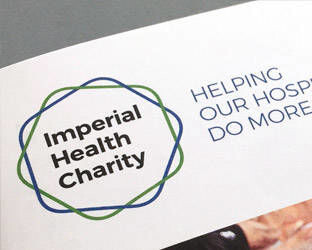Charity-funded project transforming diagnosis for patients with Obstructive Sleep Apnoea wins top health award
Charity-funded project transforming diagnosis for patients with Obstructive Sleep Apnoea wins top health award
04 September 2024

The work, led by Dr Patrik Bächtiger and his team to support patients with Obstructive Sleep Apnoea, received the Modernising Diagnostics Award at this year’s HSJ Awards, which recognise the very best in healthcare delivery.
Obstructive Sleep Apnoea is a disorder where people repeatedly stop breathing while they sleep. Left undiagnosed, people with this disorder are at risk of heart failure, lung disease, and stroke.
On average, with current NHS demand, patients with Obstructive Sleep Apnoea wait up to two years for a diagnostic test, which usually involves multiple hospital visits and procedures using cables, tubes and wires. The new innovation is reducing hospital pressures and improving outcomes for patients.
Thanks to our funding, a team of respiratory and sleep specialists at Charing Cross Hospital supported by Imperial College’s Health Impact Lab have introduced a wearable sensor called an AcuPebble, which is stuck onto the base of the patient’s neck to record breathing sounds while they are sleeping.
Dr Patrik Bächtiger, NIHR Clinical Lecturer in Digital Health and acute internal medicine physician at Charing Cross Hospital, said: “Support from Imperial Health Charity has helped us completely transform how patients are diagnosed.
“We’re now using a technology-powered pathway that delivers faster diagnosis, saves the NHS money, improves health equity, liberates staff time, and drives sustainability through a reduced CO2 footprint. And we’ve achieved all of this in under 12 months!”

Not only does the device improve patients’ experience, but it can also be used remotely, reducing hospital visits.
The AcuPebble technology analyses the data recorded by the sensor automatically using special software, saving staff from having to do this manually, which previously took over 30 minutes per patient.
Dr Bächtiger hopes the device will continue to reduce patient wait times to receive a diagnosis. So far, using the device has shown up to 80% reduction in waiting times for patients to receive a diagnosis, improving treatment times and outcomes for patients.
This project is funded by Imperial Health Charity as part of our Innovate at Imperial grants programme, which aims to provide opportunities for permanent staff at Imperial College Healthcare NHS Trust to explore innovative ways of improving health and social care. Find out more about the programme on our website.
Discover how else we're helping to make a difference to your hospital by clicking here.

